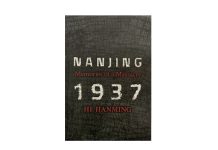By Zheng Guichu
IN December 2019, when reports about a possible new virus in Wuhan, Hubei province, began emerging, renowned respiratory disease expert Dr Zhong Nanshan, who was 84 at the time, immediately joined the fight against the as-yet unidentified virus.
Zhong warned others that it was not the proper time to travel to Wuhan, but selflessly risked his own life to travel there to combat the virus and save lives. He made a great contribution to the fight against the novel coronavirus which causes COVID-19 and was recently recognized by the United States-based Time magazine as one of 100 people in the world who made a critical difference in 2020, as well as bestowed China’s highest award, the Medal of the Republic.
Zhong is one of the many selfless, mostly unsung heroes in the fight against COVID-19. Tens of thousands of health workers across China volunteered to go to the front line in Wuhan, and thanks to those brave men and women, China succeeded in curbing the spread of the virus in about a month and cutting the chains of local transmissions by April.
Since then, the occasional resurgences of infections have been caused by imported cases. And guided by improved knowledge of the virus, strict prevention and control measures and public engagement, China has been able to contain the local outbreaks wherever and whenever they have occurred.
As a result, life in China has returned to normal. And due to strong recovery in the second and third quarters, China is once again leading the global economic recovery. China notified the international community about the threat of an epidemic at the outset, and shared with the rest of the world its experiences of containing the spread of the virus and treating the infected.
It has donated funds twice, totaling $50 million, to the World Health Organization and sent 34 medical expert teams to 32 countries. Between March 15 and Sept 6, it supplied 151.5 billion face masks, 1.4 billion personal protective equipment, 230 million eyeshields and 209,000 ventilators to other countries to help them better fight the virus.
But, sadly, at a time when a collective global response was most needed, politicians and media outlets of some countries started spreading a “political virus”; they are still doing so.
China has faced a flurry of false accusations from certain countries since the beginning of the pandemic. One of the strangest accusations has been made by some US politicians that the virus was developed in a Wuhan laboratory although US intelligence agencies have failed to furnish any evidence to prove this and such allegations have been trashed by the global scientific community.
These politicians and some media outlets also claim, without any evidence though, China could and should have prevented the spread of the virus to the rest of the world. Of course, they fail to mention that China did do that, has been doing that, and will continue to do that.
With the benefit of hindsight, it is easy to criticize a country. In January, when Wuhan experienced a pneumonia outbreak due to unknown causes, there was an avalanche of questions and few definitive answers. In that vacuum, China quickly collected and analyzed relevant information in the shortest possible time.
Locking down an entire city (Wuhan) of 11 million people was an unprecedented and difficult decision. And as soon as scientific data demanded, under the leadership of President Xi Jinping, governments at all levels acted decisively. That is why China could warn the world about the devastating effects of the virus, giving them enough time to prepare to combat the virus.
It’s a pity that some countries squandered the window of time to prepare to combat the virus. Some even began racial profiling and spreading hatred. COVID-19, as many world leaders have acknowledged, has shown that the lives of people across the world are intertwined. So governments and peoples have to work together to tackle common challenges. But some countries have resorted to “vaccine nationalism” by hoarding resources and refusing to share vaccines with other countries. This go-it-alone attitude has proved disastrous in the past, and is destined to do so again. In today’s globalized world, the selfish, due to their churlish self-isolation, have slowed down not only their own economic and pandemic recovery, but also that of other countries.
– The Daily Mail-China Daily news exchange item




